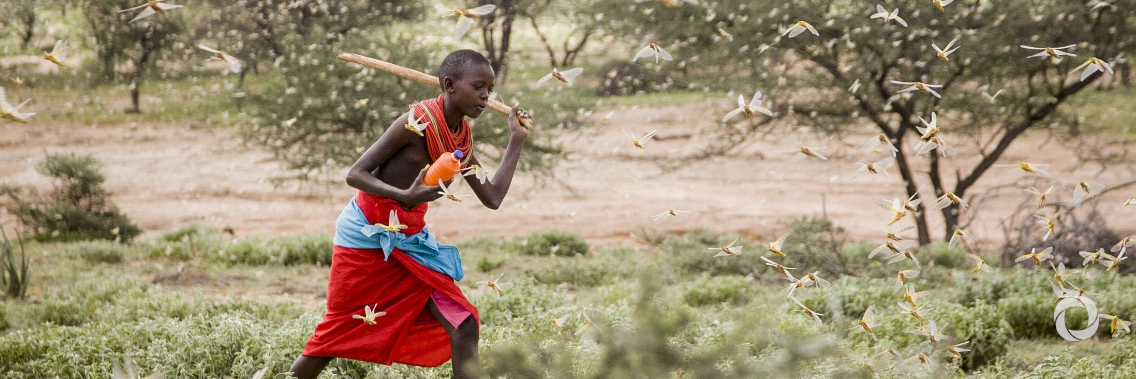With the rainy season fast approaching, countries in the Horn of Africa are in a race against time to tackle a Desert Locust invasion amidst ongoing humanitarian challenges, the United Nations warned.
The infestation in Kenya is the worst in 70 years, while Somalia and Ethiopia are experiencing their worst outbreaks in 25 years, putting crop production, food security and millions of lives at risk.
Swarms crossed into Uganda overnight, and Tanzania and South Sudan are now “on the watch list”, the UN’s top humanitarian official reported.
“In this region where there is so much suffering and so much vulnerability and fragility, we simply cannot afford another major shock. And that’s why we need to act quickly. We do have a chance to nip this problem in the bud, but that’s not what we’re doing at the moment. We’re running out of time,” Mark Lowcock told ambassadors, during a briefing at UN Headquarters.
Locusts are the world’s oldest and most destructive migratory pest. An average swarm, which contains up to 40 million insects, can travel up to 150 km in a single day and can devour enough food to feed 34 million people within that time.
The locust threat comes as the region is recovering from what Mr. Lowcock described as recent “back-to-back shocks” which have undermined resilience, with some 19 million people at risk of experiencing severe food insecurity.
Somalia and Sudan faced a famine threat in 2017, but communities have also weathered poor rains, drought, and floods in the past two years.
“It is these weather events which are creating the environment to facilitate the current locust outbreak”, Mr. Lowcock explained. “Unusually heavy rains and increase in the frequency in cyclones in the Indian Ocean have created favourable conditions for the locusts to breed.”
The UN Food and Agriculture Organization (FAO) recently launched a $76 million appeal to control the locusts’ spread. So far, only around $20 million has been received; roughly half of which came from a UN emergency fund.
Original source: UN News
Published on 10 February 2020

